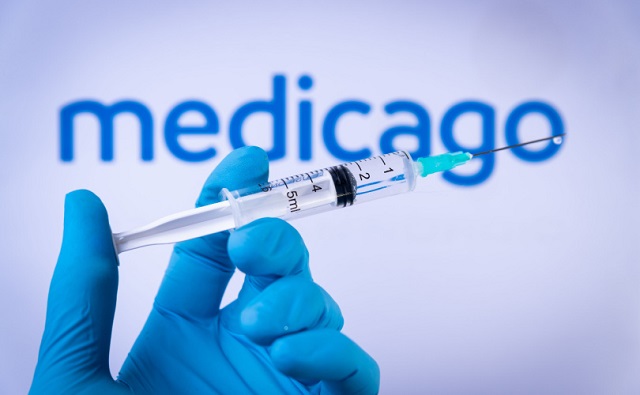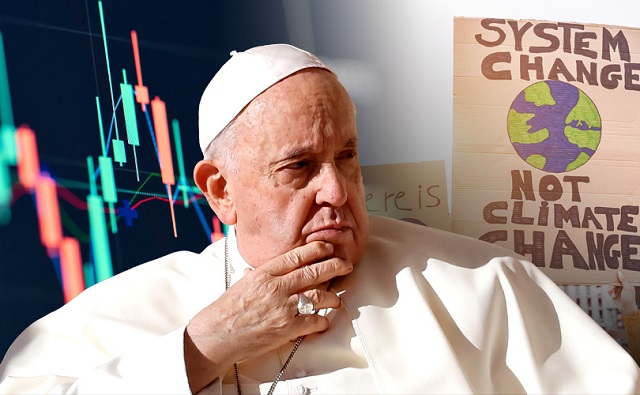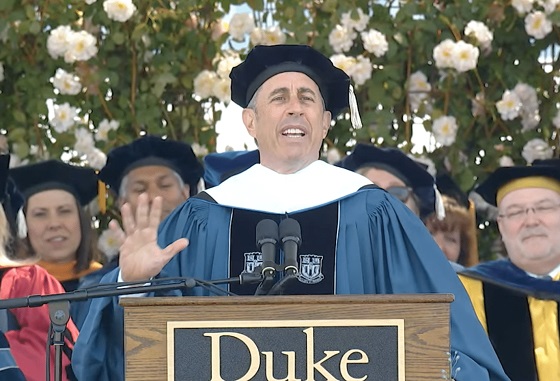COVID-19
Conservative MPs demand investigation into $300 million in gov’t losses from COVID vaccine development

From LifeSiteNews
Public Health Agency of Canada said it lost $150 million on an unfulfilled COVID jab contract in 2022 and an additional $173 million that went to Quebec-based Medicago, Inc., which is shutting down in 2023
Canada’s House of Commons health committee is expected to soon vote on a motion demanding answers into how more than $300 million of taxpayer money was lost on failed COVID jab ventures with pharmaceutical companies.
It was recently revealed that the Public Health Agency of Canada (PHAC) lost $150 million on an unfulfilled COVID jab contract with an undisclosed entity in 2022. In addition, $173 million given to Quebec-based Medicago Inc., which said it would be shutting down in 2023 due to a failed development of its own plant-based COVID shot, is now lost. Medicago is a subsidiary of Japan-based Mitsubishi Chemical Group.
The losses came to light after they were discovered in the government’s 2022-2023 public accounts report, which was tabled on October 24.
As a result, Conservative Party of Canada (CPC) MPs have called for a parliamentary committee to investigate the severe losses related to COVID jab development in order to hold both PHAC and the federal government of Prime Minister Justin Trudeau accountable.
Conservative MP Stephen Ellis said when speaking about the motion Monday before the Standing Committee on Health that he believes Canadians “deserve and demand an explanation for how [the Liberals] believe that they could possibly bury, hide, and lose $300 million in taxpayer money.”
Ellis said the Trudeau government’s spending of more than $300 million shows severe government waste.
CPC MP Robert Kitchen said that the “millions” being “wasted” are not being accounted for, and that this is “shocking when we know Canadians who are suffering and struggling to make ends meet.”
“The average Canadian that’s out there sits and talks about nickels and dimes,” he said.
“Now they’re talking millions of dollars and they still think they are just dimes,” he added.
The health committee is soon expected to pass a motion to hold “four hours of meetings on the government’s Advance Purchase Agreement for vaccines with Medicago.”
The motion calls for Minister of Health Mark Holland, PHAC president Heather Jeffrey, Treasury Board president Anita Anand and other officials from the health ministry to be called to speak to the committee.
Medicago’s failed contract called for 76 million doses of its own COVID jab to be made. However, not one was ever delivered.
Of note is that Medicago’s COVID jab plant is in the Québec City riding of Trudeau’s Public Works Minister Jean-Yves Duclos.
CPC MP Pierre Paul-Hus said that “Canadians are the ones who have been paying” for Liberal waste.
“The company gets millions and then goes back to Japan and the government says, ‘Oh, well, too bad, it doesn’t matter.’ This is serious. There are limits,” he said.
Trudeau’s MPs admit that the motion is likely to pass.
As for PHAC, it has acknowledged that it did indeed have an “unfulfilled contract by a vendor” that involved $150 million. It said it was marked under a section titled “Losses of public money due to an offence, illegal act or accident.”
Trudeau government pushed experimental COVID jabs
The COVID shots were heavily promoted by the Trudeau government. During the so-called COVID pandemic, he referred to those who chose not to get the experimental COVID shots as terrible people.
In 2021, Trudeau said Canadians “vehemently opposed to vaccination” do “not believe in science,” are “often misogynists, often racists,” and even questioned whether Canada should continue to “tolerate these people.”
In April, Trudeau came under fire after claiming he did not “force” anyone to take the COVID-19 shots.
Health Canada only approved mRNA-based COVID shots made in other countries, such as Pfizer’s and Moderna’s, as well as one from Johnson and Johnson.
In September 2023, Health Canada approved a revised Moderna mRNA-based COVID shot despite research showing that 1 in 35 recipients of the booster ended up with myocardial damage.
There is mounting evidence that all mRNA-based COVID injections carry extreme risks, including for children.
A recent study done by researchers at the Canada-based Correlation Research in the Public Interest found that 17 countries have a “definite causal link” between peaks in all-cause mortality and the fast rollouts of the COVID shots and boosters.
LifeSiteNews reported last month how the Polyomavirus Simian Virus 40 (SV40), which is a monkey-linked DNA sequence known to cause cancer when it was used in old polio vaccines, has been confirmed by Health Canada to be present in the Pfizer COVID shot, a fact that was not disclosed by the vaccine maker to officials.
The Conservative Party, although silent early on during the COVID crisis, later came out opposing COVID mandates.
A recent bill championed by party leader Pierre Poilievre that would have given Canadians back their “bodily autonomy” by banning future jab mandates was voted down after Trudeau’s Liberals and other parties rejected it.
Adverse effects from the first round of COVID shots have resulted in a growing number of Canadians filing for financial compensation over injuries from the jabs via the federal Vaccine Injury Program (VISP).
Thus far, VISP has already paid over $6 million to those injured by COVID injections, with 2,000 claims remaining to be settled.
COVID-19
NIH Quietly Altered Definition For Gain-Of-Function Research On Its Website, Former Fauci Aide Confirms

 From the Daily Caller News Foundation
From the Daily Caller News Foundation
By JASON COHEN
National Institutes of Health (NIH) Principal Deputy Director Lawrence Tabak confirmed on Thursday that his agency’s communications department altered NIH’s definition for gain-of-function research, with the change being “vetted” by “experts.”
The NIH until Oct. 20, 2021 defined this research as “modif[ying] a biological agent so that it confers new or enhanced activity to that agent,” while “some scientists use the term broadly to refer to any such modification,” according to the House Oversight Committee. Republican Rep. Nicole Malliotakis of New York questioned Tabak, a former aide to Dr. Anthony Fauci, about the agency changing its definition of the research on its website, asking him who authorized the alteration.
WATCH:
The current website does not define gain-of-function research, but asserts this research is usually uninvolved with enhanced potential pandemic pathogens.
“The change was made by our communications department because of the confusion that people have about the generic term of gain-of-function and the specific term gain-of-function,” Tabak testified.
Malliotakis responded by suggesting the communications department would not be qualified to make a change like this and must have had other input.
“The content was vetted,” Tabak testified. “By individuals who are subject-matter experts.”
Fauci firmly denied that the National Institute of Allergy and Infectious Diseases (NIAID) funded gain-of-function research on bat-based coronaviruses at the Wuhan Institute of Virology (WIV) before the COVID-19 pandemic during a Senate hearing in May 2021.
“The NIH has not ever and does not now fund gain of function research in the Wuhan Institute of Virology,” Fauci said.
Tabak testified on Thursday that the NIH did fund this research at the Wuhan Institute of Virology, but it “depends on [the] definition.”
The NIAID, which Fauci previously led, funded the nonprofit group EcoHealth Alliance to study bat-based coronaviruses in China that consisted of the transfer of $600,000 to the WIV, the Daily Caller News Foundation previously reported.
COVID-19
COVID Lab Leak: Over four later, EcoHealth Alliance funding is finally suspended

From Heartland Daily News
Thursday, May 16, 2024
Federal Funding Stripped From Nonprofit at Center of COVID Lab Leak Controversy
Today, the Biden administration suspended federal funding to the scientific nonprofit whose research is at the center of credible theories that the COVID-19 pandemic was started via a lab leak at the Wuhan Institute of Virology.
This morning, the U.S. Department of Health and Human Services (HHS) announced that it was immediately suspending three grants provided to the New York-based nonprofit EcoHealth Alliance (EHA) as it starts the process of debarring the organization from receiving any federal funds.
“The immediate suspension of [EcoHealth Alliance] is necessary to protect the public interest and due to a cause of so serious or compelling a nature that it affects EHA’s present responsibility,” wrote HHS Deputy Secretary for Acquisitions Henrietta Brisbon in a memorandum signed this morning.
For years now, EcoHealth has generated immense controversy for its use of federal grant money to support gain-of-function research on bat coronaviruses at the Wuhan lab.
In a memo justifying its funding suspension, HHS said that EcoHealth had failed to properly monitor the work it was supporting at Wuhan. It also failed to properly report on the results of experiments showing that the hybrid viruses it was creating there had an improved ability to infect human cells.
Congressional Republicans leading an investigation into EcoHealth’s research in Wuhan, and the role it may have played in starting the pandemic via a lab leak, cheered HHS’s decision.
“EcoHealth facilitated gain-of-function research in Wuhan, China without proper oversight, willingly violated multiple requirements of its multimillion-dollar National Institutes of Health [NIH] grant, and apparently made false statements to the NIH,” said Rep. Brad Wenstrup (R–Ohio), chair of the House’s Select Subcommittee on the Coronavirus Pandemic in a statement. “These actions are wholly abhorrent, indefensible, and must be addressed with swift action.”
Beginning in 2014, EcoHealth received a grant from NIH’s National Institute of Allergies and Infectious Diseases (NIAID) to study bat coronavirus in China. Its initial scope of work involved collecting and cataloging viruses in the wild and studying them in the lab to spot which ones might be primed to “spillover” into humans and cause a pandemic.
Soon enough, EcoHealth used some of the viruses they’d collected to create “chimeric” or hybrid viruses that might be better able to infect human lung cells in genetically engineered (humanized) mice.
This so-called “gain-of-function” research has long been controversial for its potential to create deadly pandemic pathogens. In 2014, the Obama administration paused federal funding of gain-of-function research that might turn SARS, MERS, or flu viruses into more transmissible respiratory diseases in mammals.
In 2016, NIH flagged EcoHealth’s work as likely violating the 2014 pause.
EcoHealth President Peter Daszak argued to NIH at the time that the viruses his outfit was creating had not been proven to infect human cells and were genetically different enough from past pandemic viruses that they didn’t fall under the Obama administration pause.

Wuhan Institute of Virology and Peter Daszak of EcoHealth Alliance
NIH accepted this argument under the condition that EcoHealth immediately stop its work and notify the agency if any of its hybrid viruses did show increased viral growth in humanized mice.
But when these hybrid viruses did show increased viral growth in mice, EcoHealth did not immediately stop work or notify NIH. It instead waited until it submitted an annual progress report in 2018 to disclose the results of its experiments.
A second progress report that EcoHealth submitted in 2021, two years after its due date, also showed its hybrid viruses were demonstrating increased viral growth and enhanced lethality in humanized mice.
In testimony to the House’s coronavirus subcommittee earlier this month, Daszak claimed that EcoHealth attempted to report the results of its gain-of-function experiments on time in 2019, but was frozen out of NIH’s reporting system.
The HHS memo released today says a forensic investigation found no evidence that EcoHealth was locked out of NIH’s reporting system. The department also said that EcoHealth had failed to produce requested lab notes and other materials from the Wuhan lab detailing the work being done there and the lab’s biosafety conditions.
These all amount to violations of EcoHealth’s grant agreement and NIH grant policy, thus warranting debarment from future federal funds, reads the HHS memo.
That EcoHealth would be stripped of its federal funding shouldn’t come as too great a shock to anyone who watched Daszak’s congressional testimony from earlier this month. Even Democrats on the committee openly accused Daszak of being misleading about EcoHealth’s work and manipulating facts.
Rep. Raul Ruiz (D–Calif.), the ranking Democrat on the House’s coronavirus subcommittee, welcomed EcoHealth’s suspension, saying in a press release that the nonprofit failed its “obligation to meet the utmost standards of transparency and accountability to the American public.”
An HHS Office of the Inspector General report from last year had already found that EcoHealth had failed to submit progress reports on time or effectively monitor its subgrantee, the Wuhan Institute of Virology.
When grilling Daszak, Democrats on the Coronavirus Subcommittee went to great lengths to not criticize NIH’s oversight of EcoHealth’s work. The HHS debarment memo likewise focuses only on EcoHealth’s failures to abide by NIH policy and its grant conditions.
Nevertheless, it seems pretty obvious that NIH was failing to abide by the 2014 pause on gain-of-function funding when it allowed EcoHealth to go ahead with creating hybrid coronaviruses under the condition that they stop if the viruses did prove more virulent.
NIH compounded that oversight failure by not stopping EcoHealth’s funding when the nonprofit did, in fact, create more virulent viruses, and not following up on a never-submitted progress report detailing more gain-of-function research until two years later.
The House Subcommittee’s investigation into NIH’s role in gain-of-function research at the Wuhan lab is ongoing. Tomorrow it will interview NIH Principal Deputy Director Lawerence Tabak. In June, it will interview former NIAID Director Anthony Fauci.
Originally published by Reason Foundation. Republished with permission.
-

 conflict2 days ago
conflict2 days agoWhite House Reportedly Worried About Russia’s Sudden Momentum Months After Biden Declared Putin ‘Already Lost’ War
-

 Crime1 day ago
Crime1 day agoThe US Canadian border: Greatest number of terrorist watch list individuals being apprehended at northern border
-

 Crime2 days ago
Crime2 days agoSlovakian prime minister who opposed WHO Pandemic Treaty shot in assassination attempt
-

 COVID-191 day ago
COVID-191 day agoNIH Quietly Altered Definition For Gain-Of-Function Research On Its Website, Former Fauci Aide Confirms
-

 Energy1 day ago
Energy1 day agoPope Francis calls for ‘global financial charter’ at Vatican climate change conference
-

 Economy10 hours ago
Economy10 hours agoCanadians experiencing second-longest and third steepest decline in living standards in last 40 years
-

 Bruce Dowbiggin1 day ago
Bruce Dowbiggin1 day agoJerry Came to See The Babies. And They Walked Out On Him
-

 Energy2 days ago
Energy2 days agoLNG leader: Haisla Nation Chief Councillor Crystal Smith on the world’s first Indigenous project






